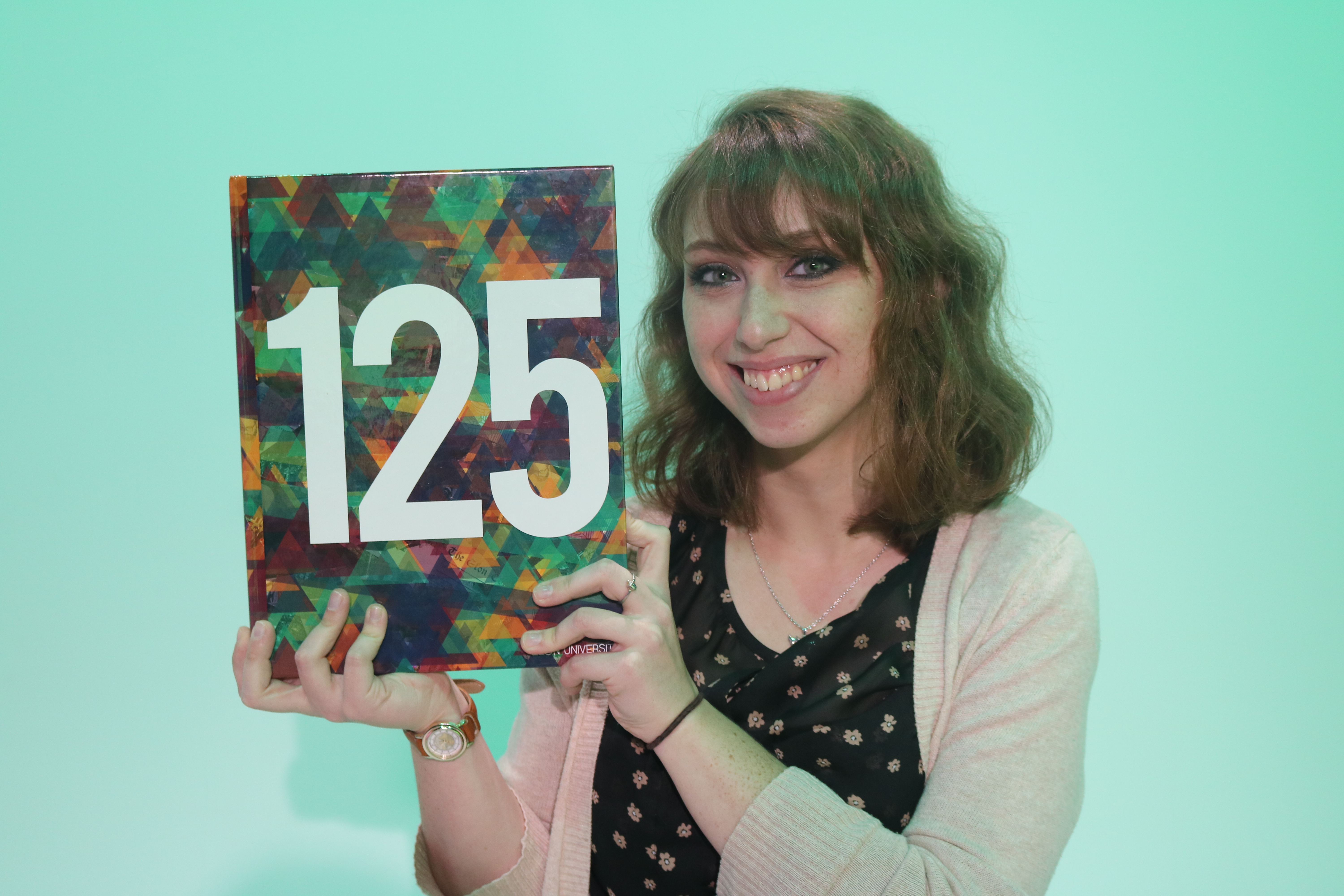Emery Eisner loves yearbooks, which makes her new role as Phi Psi Cli's editor-in-chief quite fitting.
“I think it’s just such a magical thing to be able to open a book and feel you’re a part of history,” said Emery Eisner ’22, who recently began her journey as Phi Psi Cli’s new editor-in-chief at the start of the 2019-20 academic year.
Eisner has always been passionate about yearbooks, which makes her new role within the student media organization anything but surprising. Her appreciation began in high school, when she realized that, in their purest form, yearbooks are snapshots of moments in history.
Curious about the difference in dynamics from a high school yearbook to a college book with a “more mature content scenario,” as she referred to it, Eisner jumped head first into Phi Psi Cli upon her arrival on campus.
“I wanted to be able to create a history of Elon for the people that are existing now so that generations later people can look back and maybe understand a little of what it would have been like to be at Elon in 2019,” she said.
Because she is only entering her second year at Elon, Eisner is keen on proving that she has earned her way to the top leadership role. And she’s been doing that since joining Phi Psi Cli during her first year, when she served as organization’s news editor.
Eisner took advantage of her creative freedom and decided to forego the traditional layout that has characterized the news editor’s yearbook section in years past. Instead of featuring numerous newsworthy events, Eisner chose to highlight fewer events, but in far more detail.
“I took big events and minimized them into a local context so that years later people can look at that and think about what it would have been like for a student during this specific time period,” she said.
Now the organization’s leader, Eisner’s role has changed. Her day-to-day routine is less about creation and more about supervision. And she’s found that challenging, at times, recognizing that she has to “let people spread their wings” as much as she wants to spread hers.
“Being able to delegate is something that I am learning because I’m kind of a control freak,” Eisner said.
Still, she’s excited to approach the challenge and watch others express their creative vision. Eisner is now in the process of recruiting students to join Phi Psi Cli, and she wants to make it clear that the yearbook is open to students of all fields of study, not just communications. She believes widening the demographic footprint of her staff would ultimately increase “the different perspectives we have going into the actual content,” she said.
She knows that increasing her staff numbers will lead to more original content, and content that truly embodies the Elon community.
She said in years past, the book has focused on featuring visual content compiled by other organizations and groups on campus, including Elon News Network. Eisner is hoping to empower her staff to collect some of that visual content as well.
While she recognizes that the yearbook is responsible for showcasing different on-campus groups, she believes there is value in teaching staff members to “tell other people’s stories with our voice,” she said.
She wants her staff members to be storytellers who understand the importance of documenting a year in the history of Elon University. In doing so, she hopes the Elon community will develop a new appreciation for the yearbook.
“I think a lot of the purpose of the yearbook is to observe the rest of the university and bring everybody together in that one place, which is the actual book,” she said.
But ultimately, she wants her passion for yearbooks – a tangible printed product –to be shared by her audience. Eisner believes there’s a special place for yearbooks, especially in this digital age. After all, a yearbook cannot possibly be deleted or disappear from the internet.
“You never know what’s going to happen with technology and social media,” she said. “But you will always have a book, and I think that’s really powerful.”



